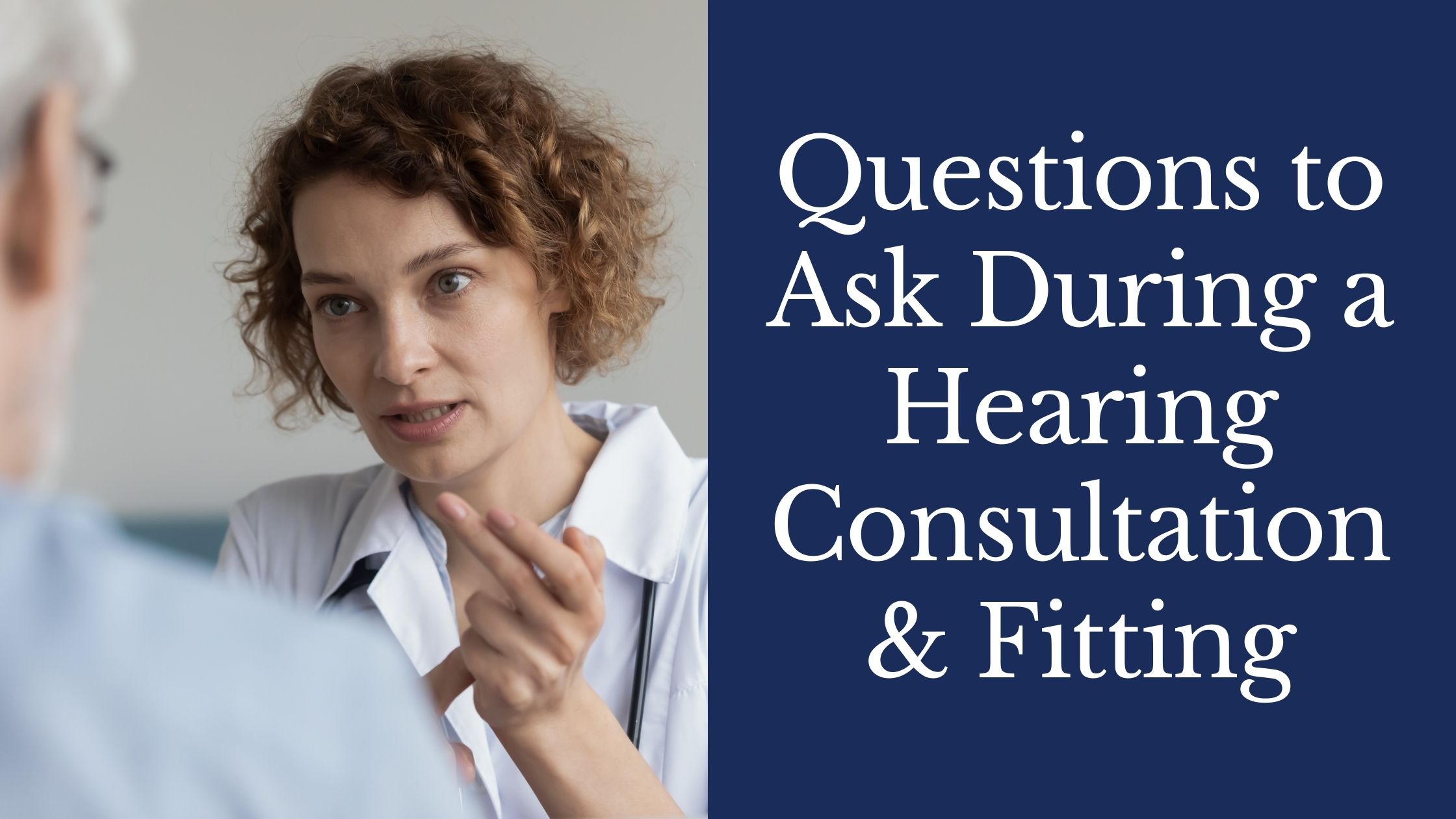Hearing loss is one of the leading chronic health issues affecting the American public. According to the National Institutes of Health, around 15% of adults aged 18 and over report “some trouble hearing.” The decision to treat hearing loss is a proactive step in recovering a vibrant hearing experience. If you’ve scheduled a hearing consultation and fitting, good for you!
Addressing hearing loss is a brave move to make that can help you to avoid the isolation that often accompanies the condition. To help you with anxious feelings that might naturally come in anticipating your consultation, here are some things to remember as your hearing appointment approaches.
Who will test your hearing?
You’ve made the appointment and purchased your hearing aids, but who exactly is testing your hearing? Audiologists are highly trained healthcare professionals specializing in hearing and auditory health. We undergo years of education and instruction that help us provide patient-centered care to prevent, diagnose, and treat hearing disorders. If you want to know more about our education and experience, feel free to ask!
What to expect from your hearing consultation
Once you arrive at our office, you will engage in a conversation of your past medical history. Most hearing conditions are the result of physical issues, sometimes genetic, or occur because of lifestyle determinants. It will be helpful for us to know, for example, if you have been in the military as that is a career that has high incidences of noise-induced hearing loss. It might also be helpful to know if a member of your family has experienced any types of hearing loss.
From there, you’ll participate in a simple and painless hearing test that will consist of sounds and frequencies being played for you while you indicate your ability to hear them. This often takes place in a private room where you have few distractions. Your comfort is of the utmost importance, so if you feel anxieties or concerns about any portions of the experience, let us know! If accommodations can be made, we will do so. It is our passion to help patients hear better. If you share your uneasiness, we can help reassure you.
What type of hearing loss do I have?
All treatment options and understanding of your hearing loss diagnosis begin with this question. There are three types of hearing loss:
- Sensorineural – resulting from damage to the inner ear and the most prevalent type of hearing loss. Most often, this type of hearing loss is permanent. The causes are the natural aging process, exposure to too loud sounds or because of preexisting genetic conditions.
- Conductive – caused by an obstruction in the ear, preventing sound from reaching the inner ear. This type of hearing loss is often reversible, when the blockage is removed. Frequent culprits of blocked ears are wax or fluid build up.
- Mixed hearing loss – some hearing loss is a mixture of both sensorineural and conductive hearing loss. An example might be that the natural aging process has damaged the architecture of your inner ear (sensorineural) and you have wax buildup (conductive) further impacting your hearing.
Do I need two hearing aids?
Although we default to thinking we are symmetrical beings, our bodies usually have varying degrees of differences from one side to the other. This can also be true of the amount of hearing loss we have in either ear, similar to how our eyeglass prescription often differs between our left and right eyes.
If you have hearing loss in both ears, it is probably best to use hearing aids in both ears. They can be specifically tuned to the degree of hearing loss that is present on each side. Of course, you may only need one hearing aid if your hearing loss is present in only one ear, or if it is an extremely mild presentation.
Bring a buddy
Asking questions and taking in so much new information can be overwhelming. Ask a friend or family member to accompany you to your hearing consultation and fitting for more support. You might need assistance or confidence asking questions, or it can be helpful to have someone with the same information as you to deliberate over which options to choose. They can also remind you of lifestyle considerations or ease around tech that can help us suggest the best fit for your individual life.

